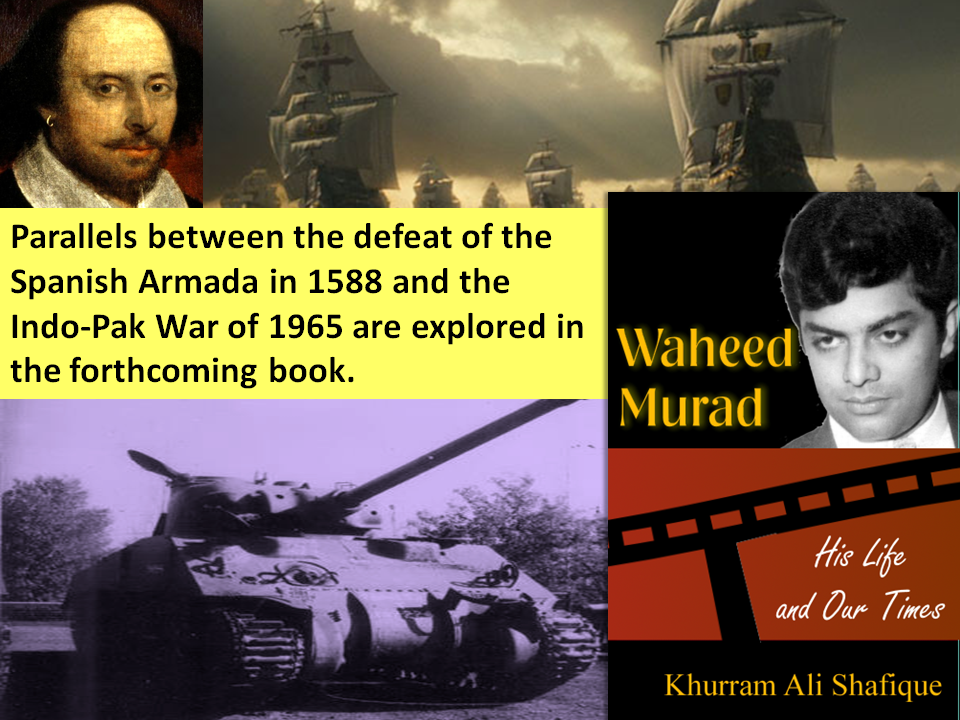In August 1588, the Spanish Armada invaded England with a fleet of 130 ships. It is generally believed now that its defeat was indecisive in strategic terms but became a great propaganda victory for England. The Latin inscription on the commemorative medal is usually translated as ‘God blew with His wind and they were scattered.’ The British believed that God favoured the Protestant cause, and out of this feeling was born a sense of national pride that expressed itself partially through an unprecedented growth of vernacular theatre. William Shakespeare had made his debut just a little earlier but became popular soon after the defeat of the Armada.
There appears to be a parallel in the history of Pakistan. In September 1965, the Indian invasion involved some of the largest deployments of tanks since the Second World War – and hence comparable to the Spanish fleet of the sixteenth century. The outcome of the war, indecisive in strategic terms, boosted the morale of the people of Pakistan. The local film industry suddenly reached an unprecedented high, which lasted for almost two decades – just like the boom in the English theatre after the Armada.
In England, theatre was eventually shut down by a puritanical regime, and the demise of the film industry in Pakistan is also sometimes linked with the Islamization policies of General Zia-ul-Haque (although this might not be completely true).
Half a century later, there happens to be a consensus on who should be the symbol of the Pakistani film industry of that bygone era. It is the actor-writer-producer-director Waheed Murad. Whether his work deserves serious attention has yet to be decided – just as it was a matter of dispute even about Shakespeare for a very long time. In the preface of the complete works of Shakespeare published in 1725, Alexander Pope complained that Shakespeare’s plays were for the amusement of the least refined of the audience, and Shakespeare could not have cherished artistic ideals when his mind was set on commercial success. For a hundred and fifty years, the best minds of England attempted to ‘improve’ the plays of Shakespeare by re-writing them for the stage, not unlike the ‘re-makes’ now being attempted of some classic movies in Pakistan. History seems to be repeating itself but as we have heard from a very famous lion in a very famous book (and film), ‘Things never happen the same way twice.’
My forthcoming book, Waheed Murad: His Life and Our Times, is a bid to make such difference.
The people of England took their playwright seriously after they had won an empire. Can the people of Pakistan do it the other way around, and find through recent heritage the much-needed confidence in their existence as a people? This is the question I hope to answer in this book.
